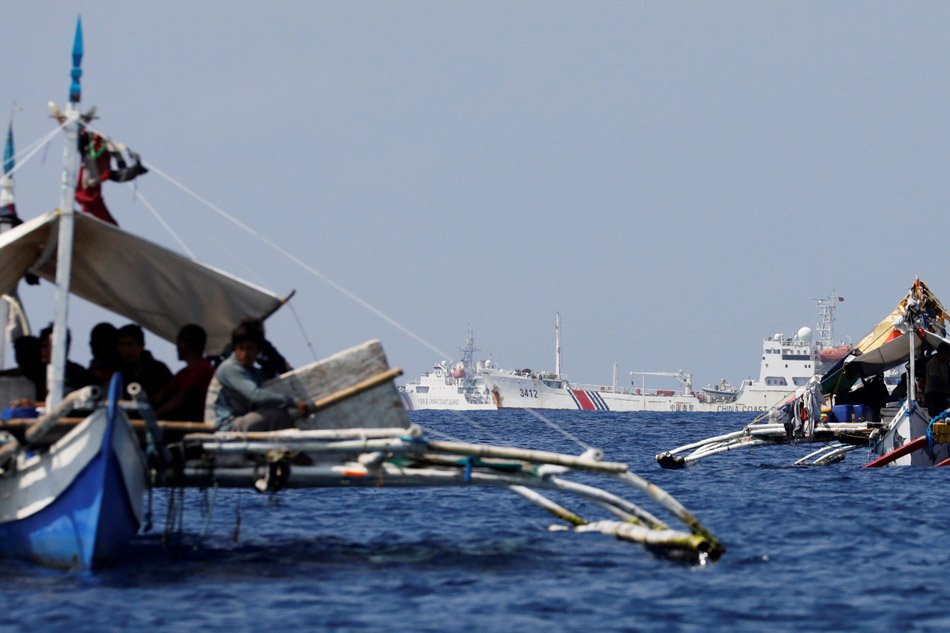As China’s seismic research on the East Vietnam Sea violates Vietnam’s rights and legitimate interests at sea, Vietnam and other states should externalize maritime issues to shed light on Beijing’s behaviors, international law expert James Kraska told Tuoi Tre News.
The Chinese survey ship Haiyang Dizhi 8 and its escorts have been conducting activities in the southern area of the East Vietnam Sea, violating Vietnam’s Exclusive Economic Zone (EEZ) and Continental Shelf.
Dr. James Kraska is one of many international experts who strongly argue that China, through such activities, breaks international law and infringes Vietnam’s rights.
Kraska, chairman and Charles H. Stockton Professor of International Maritime Law of the Stockton Center for International Law at the U.S. Naval War College, sent Tuoi Tre News the following article regarding the issues.
China’s marine survey violates Vietnam’s rights
Last week the Chinese survey ship Haiyang Dizhi 8 and its escort vessels began conducting seismic surveys to search for oil and gas beneath the seabed, well within Vietnam’s EEZ.
The EEZ was created by the United Nations Convention on the Law of the Sea (UNCLOS) to give developing states exclusive sovereign rights and jurisdiction over the natural resources as far as 200 nautical miles from shore.
With this in mind, a statement by Chinese foreign ministry spokesman Geng Shuang on July 17 that Vietnam should "earnestly respect China's sovereign rights and jurisdiction over the relevant waters" is clearly inconsistent with the rights of Vietnam and contradicts China’s obligations under UNCLOS to respect the EEZs of other states.
Vietnamese foreign ministry spokesperson Le Thi Thu Hang has said that Vietnam was attempting to contact China about the matter through several diplomatic channels, and that Vietnam had to staunchly defend its rights and resist China’s “unlawful activities.”
Vietnam has called on China to withdraw its ships from Vietnamese waters.
The issue has profound implications for Vietnam’s economic security, as the seabed gas field supplies ten percent of the country’s energy.
The EEZ was created to ensure that developing states exercises autonomy and authority over fish and natural gas and oil offshore.
Although it was initially adopted in response to the major maritime powers of the 1970s, including the former Soviet Union, Japan and the United States, today the greatest threat ironically comes from China, which has an insatiable appetite for living and non-living resources from the sea.
When Vietnam sent two coast guard vessels to request the Chinese ships to desist in their hydrographic surveys, they were met by three larger China Coast Guard vessels.
In a display of power, China sought to show that it can act with impunity against Vietnam’s maritime rights.
This demonstration of power was designed to prepare Vietnam, and other countries watching closely, that China can impose costs during maritime negotiations, such as the long-running talks to craft a Code of Conduct for the [East Vietnam Sea].
Such strong-arm tactics remind less powerful states that China is prepared to use its power and even take a dispute to the brink in order to extract concessions from its neighbors.
In this case, international law is clearly on the side of Vietnam.
In 2016, an independent arbitration panel unanimously concluded that China’s similar activities in the Philippine EEZ were unlawful under UNCLOS, and it called on China to stop encroaching on Philippine rights.
Although China rejected the decision, as a member of UNCLOS Beijing is required to comply with tribunal decisions. In fact, China has backed off somewhat from its claims against the Philippines, exercising in some cases more tact and nuance than in the past.
Yet although international law clearly supports Vietnam, and the Philippines before it, China tends to expect other countries to respect its rights, while not rendering the same legal comity.
China has had maritime disputes over oil and gas and fisheries with every country with which it has a maritime border, including South Korea, Japan, and Vietnam, and even some that it does not, such as the Philippines, Malaysia, Brunei and Indonesia.
The large number of disagreements that China has with other countries underscores that Beijing has yet to bring its conduct into compliance with UNCLOS. China supported the treaty and is a party to it yet Beijing has been unable in recent years to adhere to its terms.
Because of the huge disparity in power between China and its neighbors, China prefers to deal with each country on a bilateral basis. This approach suggests how Vietnam can most effectively protect its interests.
Vietnam, like the other states subject to Chinese unlawful behavior at sea, should begin to talk with one another about how to negotiate with China as a collective bloc of states so that the playing field is level.
The only way that Vietnam and other states can ensure their rights are protected is to collaborate, despite any disagreements that they may have with each other.
This is the most important thing that Vietnam can do – be a leader in reaching out to states as far north as Japan and as far south as Indonesia – to explore how they can mutually support one another in disputes with China.
The second thing Vietnam and other states can do is to externalize the dispute to shine a light on Chinese behavior, through bringing a compulsory arbitration case against China, and to encourage states from outside the region to engage on the issues.
As China looms large, Vietnam and other states must not deal only bilaterally, but must join together and bring outside states to the table to help to resolve the disputes.
Like us on Facebook or follow us on Twitter to get the latest news about Vietnam!





















































